The Socialist Equality Party held a series of lively public meetings last week as part of its intervention into the New South Wales state election. The SEP is running three candidates in Sydney—James Cogan in Marrickville, Richard Phillips in Bankstown and Carolyn Kennett in Auburn—and Noel Holt in the regional city of Newcastle.
Entitled “Egypt and the return of revolutionary struggles,” the meetings were held in the four electorates and addressed by the party’s candidates, and SEP national secretary and World Socialist Web Site international editorial board member, Nick Beams.
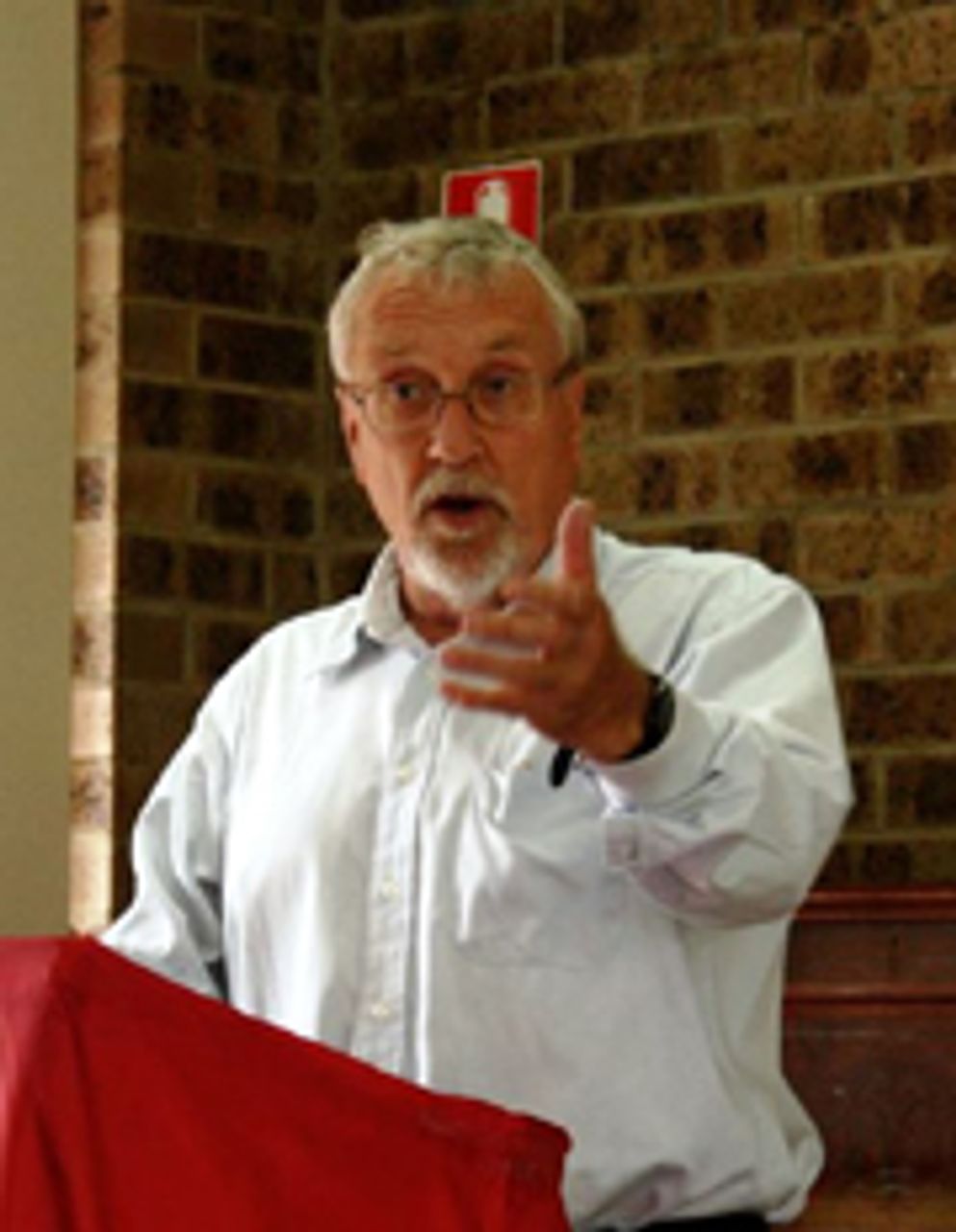 Nick Beams
Nick BeamsBeams told the audiences of local workers, students, professional people and pensioners, that the elections were being held in the midst of momentous global events. He reviewed the eruption of revolutionary struggles in Tunisia, Egypt and the Middle East, the mass demonstrations against government austerity measures in the US and Europe, the unfolding human catastrophe in Japan, and the escalating imperialist provocations against the Libyan people.
While the Japanese catastrophe had natural causes, Beams said, its outcome and consequences, in particular the nuclear meltdown at Fukushima now threatening the safety and lives of millions of residents, were entirely man-made.
The fact that nuclear plants were built in a country particularly prone to earthquakes, and whose language had provided the world with the word “tsunami”, was not the outcome of “natural” events, Beams explained, “but an expression of the irrationality, from the standpoint of the development of the human society and its productive forces, of the nation-state system.” This irrationality, he continued, was further compounded because the nuclear power plants were in the hands of privately-owned corporations, where the bottom line was not the needs and safety of society, but the dictates of profit.
“The Japanese catastrophe,” Beams said, “underscores a central conclusion of the analysis of the SEP and the International Committee of the Fourth International: the overthrow of the capitalist economy, private profit and the system of rival nation-states in which it is rooted, and its replacement by a social order where economic forces are democratically controlled and organised by society as a whole, is not some abstract ideal but a burning necessity.”
Beams denounced the UN Security Council resolution authorising military action against Libya as an “act of imperialist banditry”, reminiscent of the Italian invasion and occupation of Libya in 1936.
The UN resolution, he warned, was aimed at ensuring that the imperialist powers controlled the outcome of the uprising in Libya—to gain control of Libyan oil and more importantly to establish a base of operations against the unfinished Egyptian Revolution.
“Our party supports the struggle of the Libyan masses to overthrow the Gaddafi regime and replace it with a genuine democratic government,” he said. “This task can only be carried out by the working class in Libya, in alliance with the workers and masses across the Middle East, North Africa and internationally. It cannot be achieved on the basis of support from the imperialist powers—the road taken by the leadership of the Libyan National Council, which does not represent the masses, but a grasping layer that wants to install itself as the head of a new anti-working class regime.”
Beams explained that ongoing financial crises and government austerity measures were producing a new wave of revolutionary struggles internationally. The Australian economy, he said, was “not exempt from these processes”. The mining export boom to China was unsustainable.
The collapse of the Chinese financial bubble, he continued, “will spark an immediate fiscal crisis, followed by a direct assault on the working class, giving rise to massive social struggles, that will emerge as quickly and, for some, as unexpectedly as the Egyptian events or the mass demonstrations in Wisconsin. The crucial task today is the preparation of the necessary revolutionary leadership of those struggles. That is the purpose of the SEP election campaign,” Beams said.
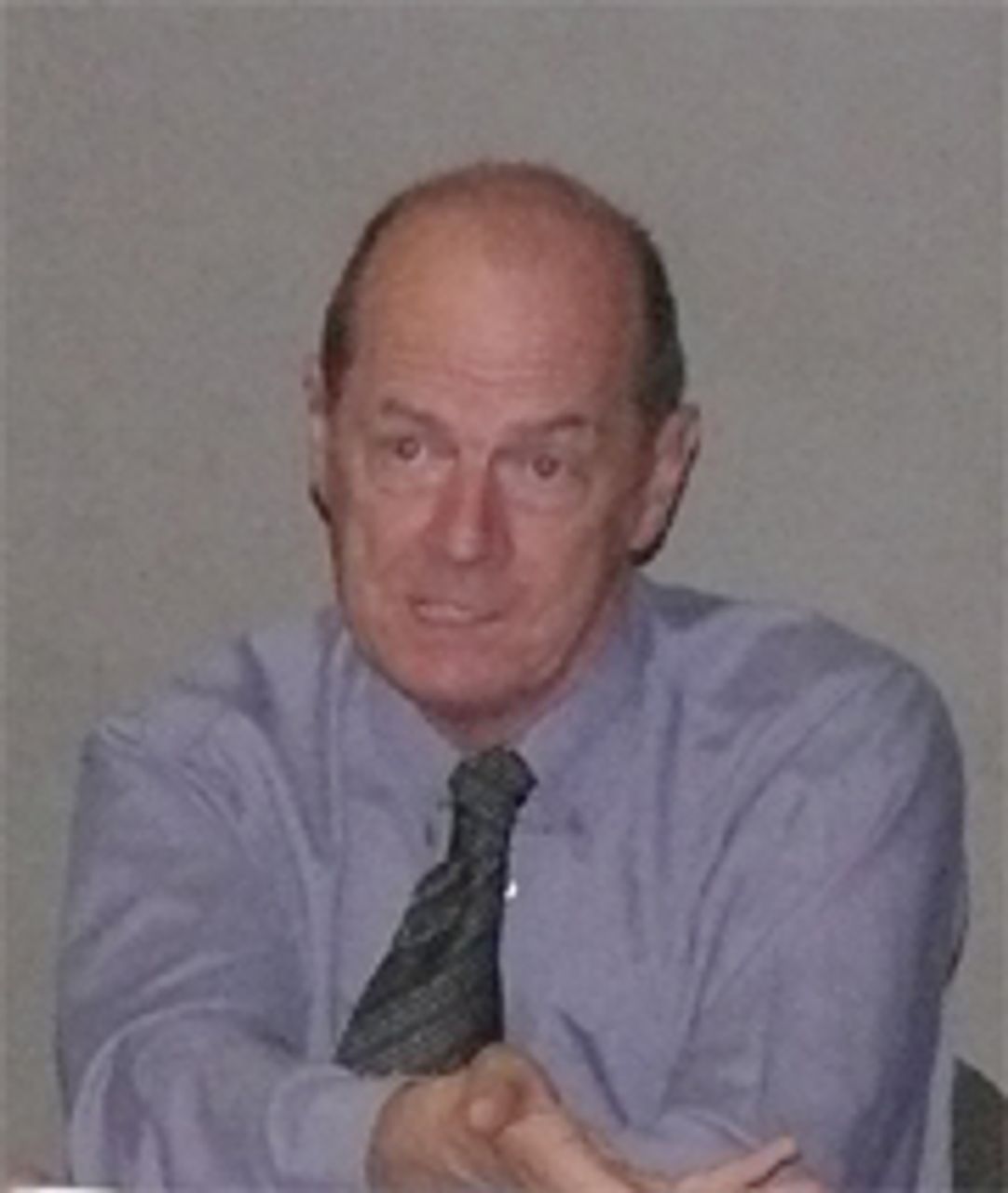 Richard Phillips
Richard PhillipsAt the Bankstown meeting SEP candidate Richard Phillips explained Labor’s transformation into a direct arm of corporate business and the deep-seated disgust felt by workers and youth toward it.
“Hundreds of thousands of workers across the country refuse to support the organisation in any form—let alone join it—preferring to vote informal, spoil their ballots or support third parties or candidates,” he said. “The Labor Party is an empty shell inhabited only by grasping bureaucrats and careerists and their immediate family members.”
Phillips detailed the incestuous relations between several current and former senior Labor officials by reviewing their career paths and myriad business connections. “There’s a seamless connection—a revolving door would be more apt—between the Labor leadership and their families and the finance industry, Macquarie Bank in particular, leading property developers and the real estate industry,” he said.
NSW Labor Premier Kristina Keneally’s decision to prorogue parliament to push through the state electricity sell-off, its last minute law-changes to by-pass environmental remediation laws for Sydney Harbour’s Barangaroo development, and countless other manoeuvres to enrich property developers, not only exposed the real nature of the Labor bureaucracy and the parliament but the profit system itself. Replacing those at the top would change nothing for the working class, Phillips said.
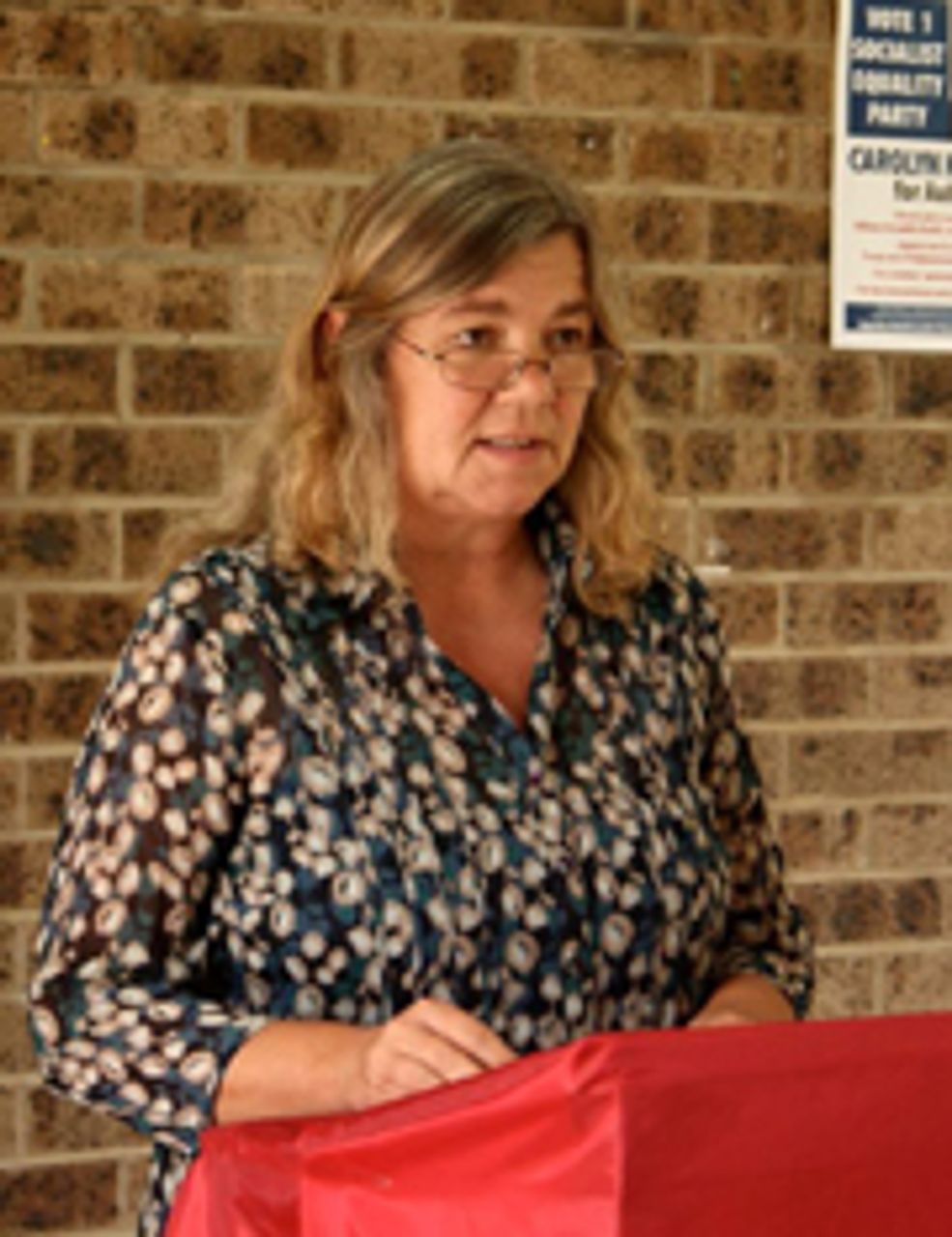 Carolyn Kennett
Carolyn KennettAt the Auburn public meeting SEP candidate Carolyn Kennett reviewed the dire situation facing residents in the working-class electorate. The official unemployment rate was 11.5 percent, or more than double the national rate of 5.3 per cent, while 34 percent of families with children in the area lived in households where no one had a job.
Kennett warned the audience that the federal government was preparing major attacks in the forthcoming May budget, and that these attacks would be backed by the Greens and implemented by whichever party won office in NSW on March 26.
Quoting from a recent news article on the forthcoming federal budget, Kennett explained that the Gillard government’s budget razor gang was preparing an estimated $20 billion cut in government spending. The areas under consideration were welfare, disability pensions, education spending and health, with reductions to medicine subsidies and less funding for pathology services.
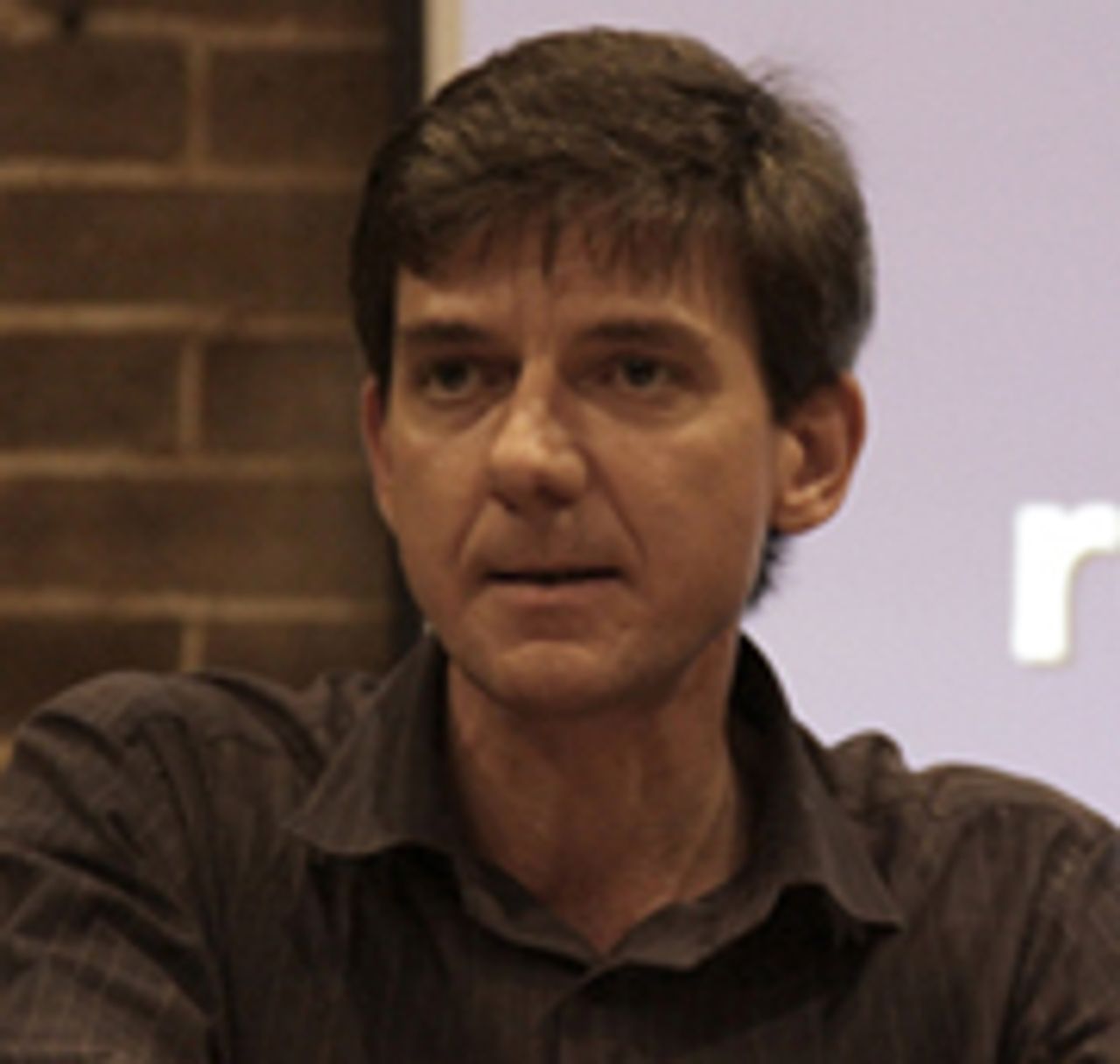 James Cogan
James CoganSEP national organiser James Cogan, the party’s candidate for the inner-western Sydney seat of Marrickville, told his electorate meeting that the global financial crisis, growing social inequality and increasing military aggression by the imperialist powers was compelling workers into the kinds of revolutionary upheavals not seen in more than forty years. Unless they put an end to capitalism, he said, and replaced it with a planned socialist economy and under the democratic control of the majority on a global scale, humanity faced a catastrophe.
Cogan explained the role of Australian exceptionalism and the ideological pressure placed on workers to view political and economic developments in Australia as separate from the rest of the world.
“The political establishment and the media repeatedly insist that Australia is somehow exceptional, unique, whether because of the so-called minerals boom or its distance from the major centres of world finance and production,” he said.
“The reality is that the breakdown of world capitalism will draw every corner of the globe into its maelstrom. As we stressed in our election statement, the social processes that have led to the eruption of class struggle from Egypt to America—the deeply felt anger over inequality, exploitation and governments that serve only the rich and powerful—are no less at work in Australia.”
For all the talk of a minerals boom, he said, it had only generated 27,000 jobs in the past 12 months, while official unemployment rates in urban working class areas remained near or above 10 percent. But the boom had generated vast fortunes for a tiny proportion of the population.
“While the richest 20 percent of Australians control well over 60 percent of total wealth, and the poorest 20 percent just 0.2 percent, it is above all the very uppermost sections of society—the top 1 percent—that benefit from capitalism,” he said.
Cogan said there was no avenue for working people to defend or advance its interests through the parliamentary framework and existing political setup.
“People have tried to find such an avenue by voting Green or independent. What has been the outcome? These candidates have entered the parliamentary arena and immediately fallen in behind the dictates of the financial markets. The Greens and federal independents prop up the Gillard government, abetting the continuation of the war in Afghanistan, the build-up of military forces against China and the plans for an austerity budget,” he said.
Cogan explained the class interests behind the Greens’ demands for carbon taxing: “The wealth gouged out of the working class will mainly be used to compensate the big polluters, as well as to hand over vast subsidies to so-called ‘Green’ companies, which back the Greens and whose main shareholders are the privileged inner city professionals who form the main constituency of the Greens Party.”
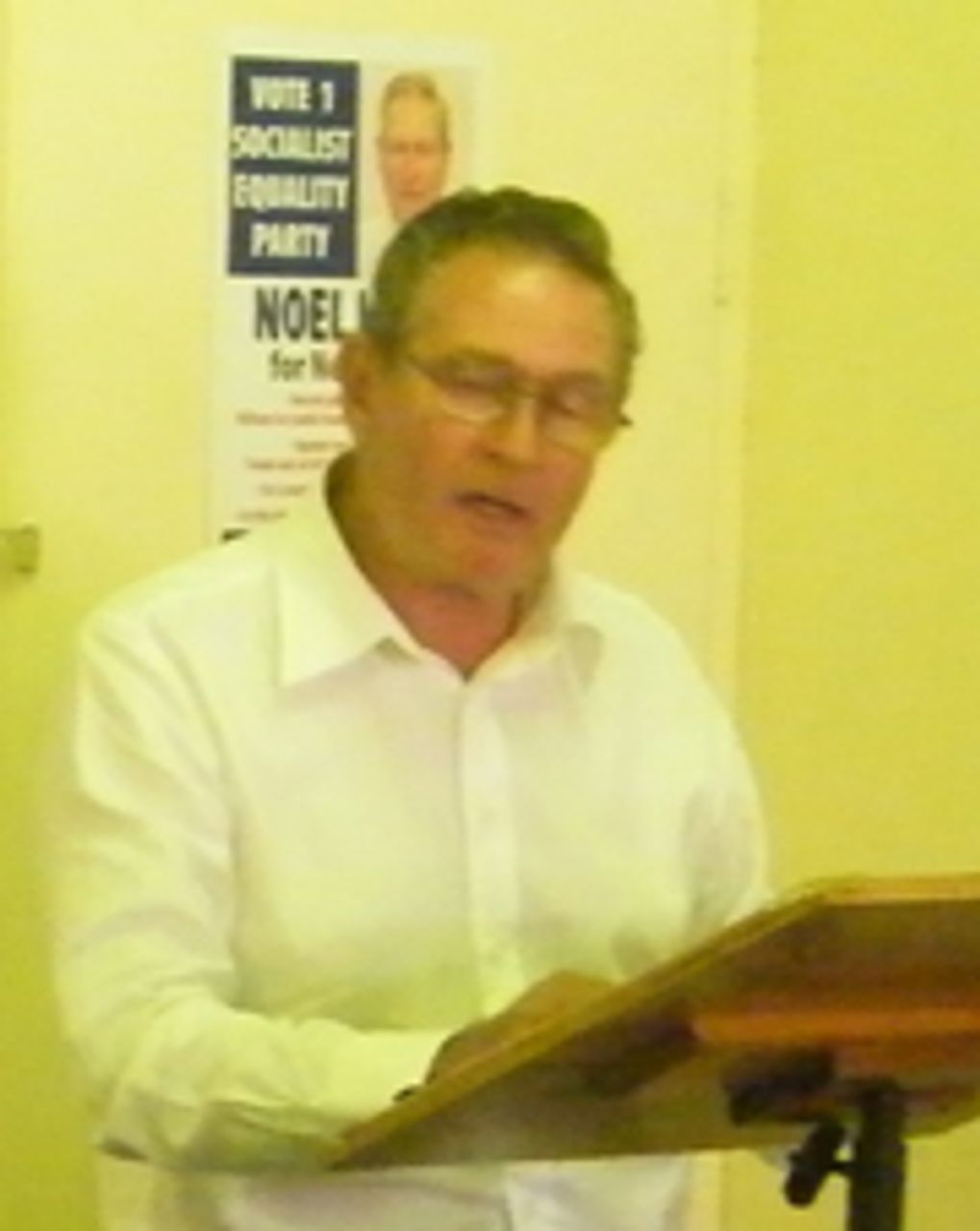 Noel Holt
Noel HoltLong-standing SEP member and former Telstra worker, Newcastle SEP candidate Noel Holt, reviewed the “free-market” policies imposed on the working class—in health, education and public transport—that were initiated by the Hawke and Keating Labor governments from 1983 to 1996 and continued by every government--Liberal and Labor, state and federal—since.
The speaker focussed on the impact of the state government’s privatisation of public housing. Residents of Windale, a local suburb, were fighting to remain in their government-owned homes, following a decision by the state Labor government to put 10 percent of its properties and all its town houses up for sale, he said.
“Residents have been told that if they want to stay, they will have to purchase their home and submit a tender along with private buyers.” Holt pointed out that there were already more than 4,000 homeless people in Newcastle, and 20 percent of them were single parents with children.
Holt explained that the demands of the corporations for the slashing of jobs and other regressive social measures had been imposed by state and federal governments with the active collaboration of the trade unions, in the name of “international competitiveness” and the “national interest”.
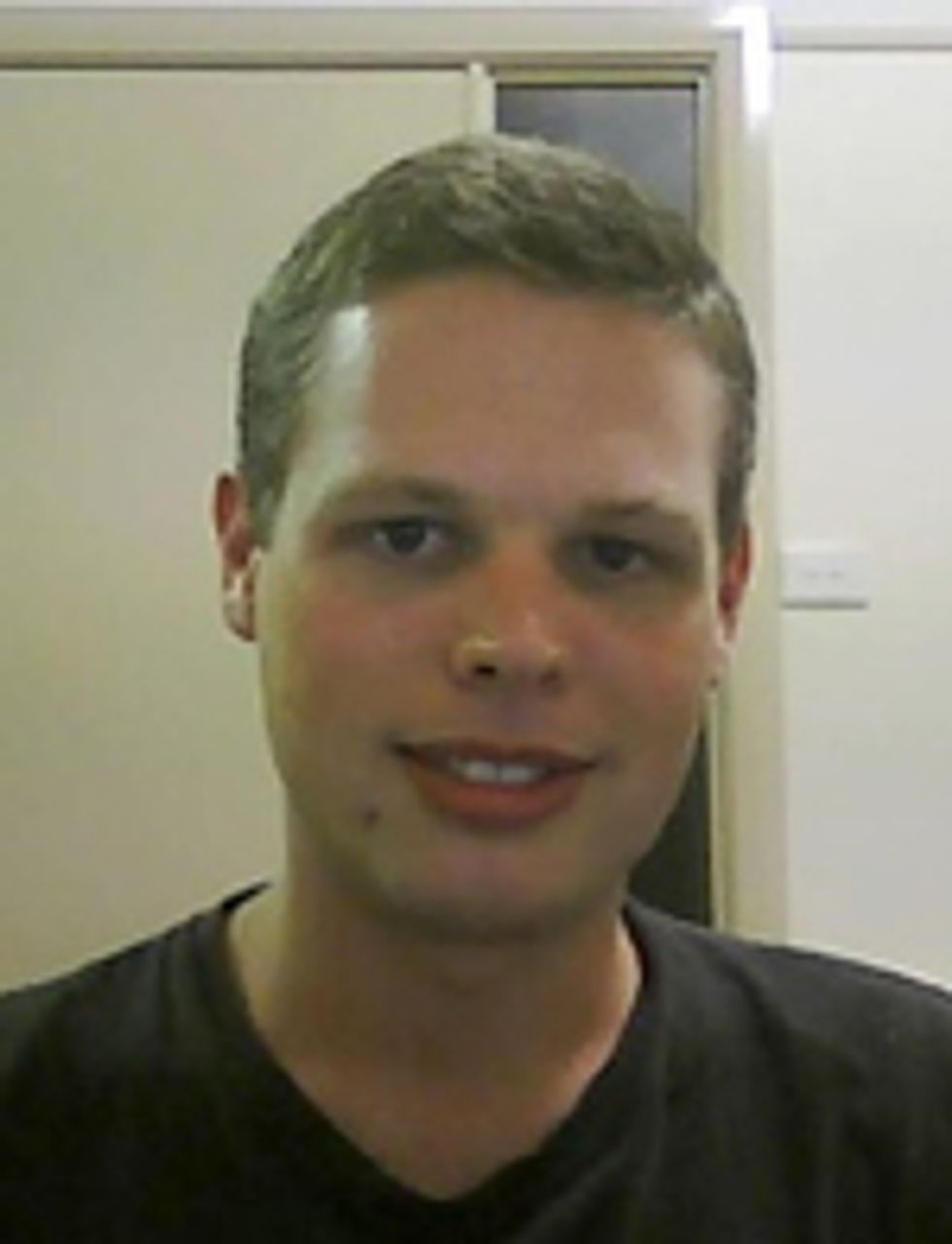 Alex
AlexSpeaking after the meeting, Alex, a student from the University of Newcastle, said: “For a long time I have believed that there needs to be a social change. Capitalism isn’t working and there must be an alternative ...
“I think workers need an independent party like the SEP and by that I mean one that isn’t part of the political establishment and the trade unions. It is obvious to me that the political parties and the unions work for big business.”
Georgina, another University of Newcastle student, said: “I think the SEP offers a genuine alternative to solving the problems facing humanity. I found that when I spoke to them at the university they were more serious than other groups like Socialist Alliance. SEP and ISSE members were able to give intelligent answers to my questions and gave some hope for the future based on a real program.
Georgina said she fully endorsed the SEP’s election manifesto. “Its demands,” she said, “are how I would like life to be. I agree that this cannot be achieved with the current political parties and that the working class are the only ones who can achieve it, through a party like the SEP.”
“I was also impressed how the other political parties were exposed, not by degrading them by using offensive language but in a serious way, by explaining their real perspectives and who they represent.”
The author also recommends:
Support the Socialist Equality Party in the NSW state election!
[3 March 2011]
Authorised by N.Beams, 40 Raymond St, Bankstown, NSW 2200
